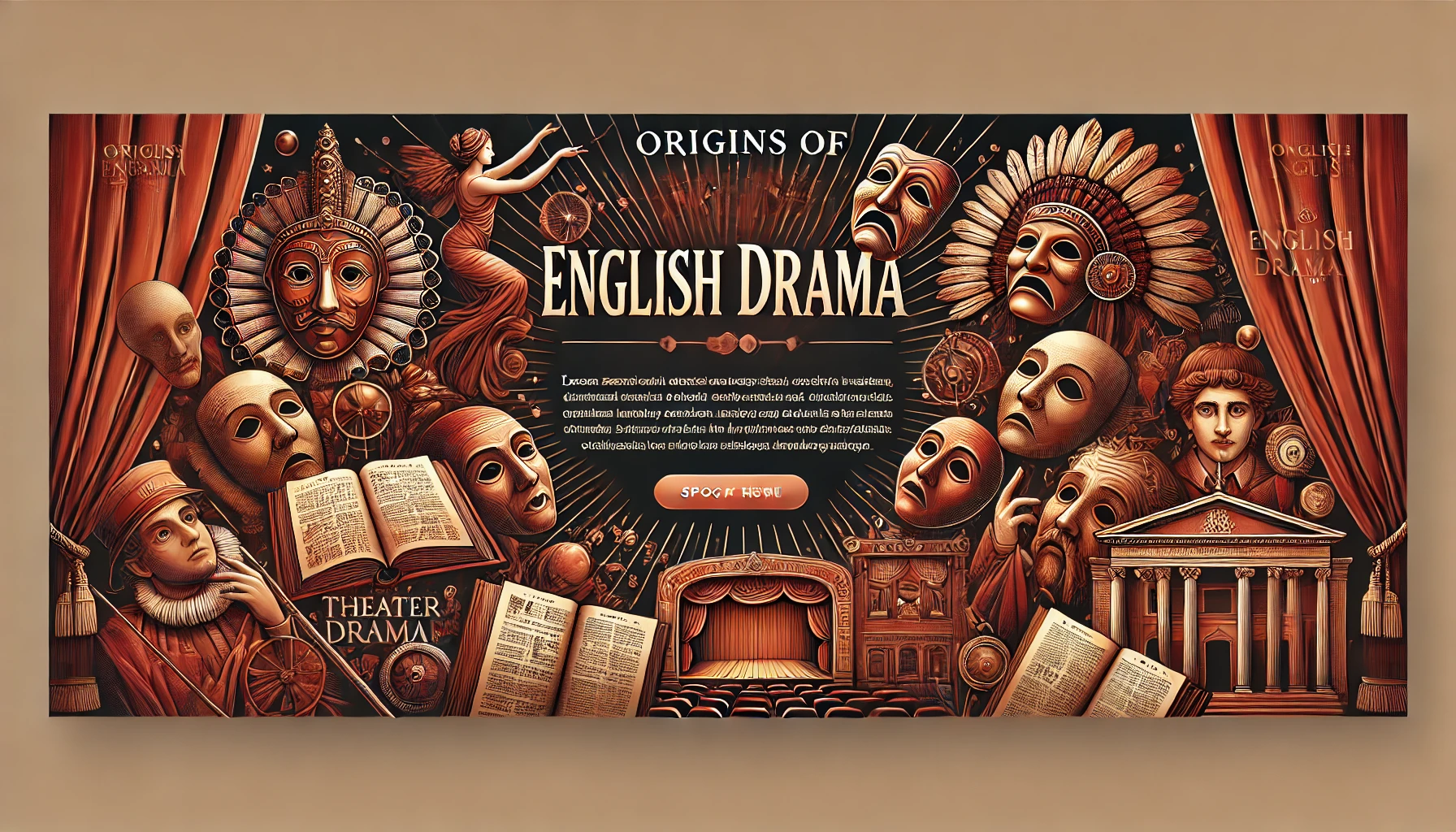

Origin of English drama
The origin of English drama can be traced back to the medieval period when performances were deeply connected to religious teachings and communal traditions. Unlike Greek and Roman drama, which was performed in grand theaters, early English drama evolved from church ceremonies and gradually moved into secular spaces. The major forms of early English drama include Mystery Plays, Morality Plays, and early theatre traditions, all of which played a crucial role in shaping later English drama, including the works of Shakespeare and his contemporaries.
Mystery plays (also called Miracle plays) were religious dramas performed during the Middle Ages (12th–16th centuries). They originated from the liturgical dramas of the church, where clergy and choir members enacted stories from the Bible, particularly those about Christ’s life, death, and resurrection. Over time, these plays moved out of churches and into town squares, performed by trade guilds during religious festivals such as Corpus Christi.
Key Features of Mystery Plays:
One of the most famous collections of mystery plays is the York Cycle, a series of plays performed in medieval England, covering biblical events from Genesis to Judgment Day.
As mystery plays became more theatrical, a new genre called morality plays emerged in the 15th century. Unlike mystery plays, which focused on biblical narratives, morality plays used allegorical characters (symbolic figures representing virtues and vices) to teach moral and religious lessons.
Key Features of Morality Plays:
A well-known example is Everyman (late 15th century), in which the character Everyman represents all of humanity and is visited by Death, prompting him to reflect on his life and seek salvation.
By the 16th century, drama began shifting from purely religious themes to secular subjects, leading to the rise of early English Renaissance theatre. Influences included:
Secular playwrights like Thomas Kyd, Christopher Marlowe, and William Shakespeare drew inspiration from medieval drama but moved towards complex plots, human emotions, and classical influences, leading to the Golden Age of English drama.
The Foundation for English Drama The Mystery and Morality Plays of medieval England laid the groundwork for the development of Elizabethan drama and modern theatre. They helped shift performance from religious instruction to storytelling, character development, and entertainment, shaping English drama as we know it today.
#origins of English drama #origins of English drama #origins of English drama #origins of English drama #origins of English drama #origins of English drama #origins of English drama #origins of English drama #origins of English drama #origins of English drama #origins of English drama #origins of English drama #origin of English drama #origin of English drama #origin of English drama #origin of English drama #origin of English drama #origin of English drama #origin of English drama #origin of English drama #origin of English drama #origin of English drama #origin of English drama #origin of English drama
Read More
Impact of Classical Drama on Renaissance Theatre
Comparison of Greek and Roman Drama (Themes, Structure, Influence)
Plot Construction in Pride and Prejudice
Introduction to Fiction and Non Fiction
Of Death — Francis Bacon (Text)
Of Truth Critical Analysis by Sir Francis Bacon
Of Truth by Francis Bacon Summary
Visit Us on our Facebook Page:
Classical Influences in Faustus This text focuses on Classical Influences in Faustus by Christopher Marlowe.…
Social Taboos in The God of Small Things Below is the account of how Arundhati…
Introduction to Much Ado About Nothing This article is gives a brief but insightful Introduction…
Narrative Technique in The God of Small Things Arundhati Roy’s The God of Small Things…
Comprehensive Summary of The God of Small Things Arundhati Roy’s The God of Small Things…
The Climax and Tragic Ending in Hamlet This article explores the topic The Climax and…
This website uses cookies.